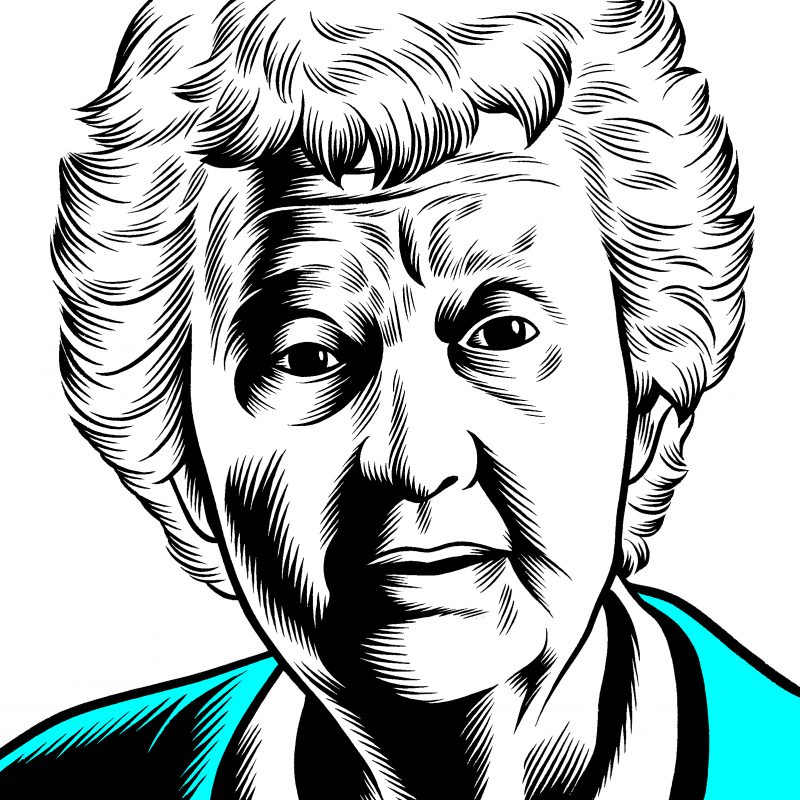Mary Midgley lives in a small cottagelike house several hours outside of London in Newcastle upon Tyne, a university town where she was previously a senior lecturer in philosophy (she’s now retired), and where she wrote her influential books of moral philosophy. She published her first book, Beast and Man, in 1978, when she was fifty-six. This was followed by eleven others, including Wickedness (1984), Evolution as a Religion (1985), Science and Poetry (2001), and a memoir, The Owl of Minerva (2005). Recently, Routledge has been re-releasing her major works and has compiled a companion volume, edited by one of her sons: The Essential Mary Midgley. The Financial Times praised her work as “commonsense philosophy of the highest order,” and she was characterized in the Guardian as “the most frightening philosopher in the country… the foremost scourge of scientific pretension.”
In recent years, she has found herself engaged in fierce public battles with Richard Dawkins and Daniel Dennett, over what she deems to be their ideological approach to the story of evolution. When I visited, she was working on a pamphlet for teachers in British schools, to help explain the evolution v. creationism debate.
Midgley is a tall, formidable woman. I arrived at her home by train at four in the afternoon, and though I would be staying overnight, she requested that we begin the interview immediately. We spoke for an hour and a half, after which she grew tired. Then she cooked us a vegetarian dinner. When I followed her into the kitchen and asked if I could help her with the preparations, she remarked, very drily, “It’s no use being helped.”
—Sheila Heti
I. MYTHMAKING
THE BELIEVER: I want to talk a bit about evolution as the reigning creation myth of our time, and how it affects our idea about what a person is, and what life is. In your book Evolution as a Religion, you criticize some scientists for attributing to Darwin’s theory of evolution certain things which shouldn’t be attributed to it.
MARY MIDGLEY: Well, I think it’s a matter of getting the story right and not misusing it, and there are two ways in which the idea of evolution has been misused. One is the optimistic way, which says it’s all getting better and better, and we should go along with it—that evolution is a sort of escalator which can take us anywhere. This was Lamarck’s and Herbert Spencer’s view—it was not Darwin’s, but people think that Darwin proved it. He did not. But if we believe this, it produces a belief in progress, which means that...
You have reached your article limit
Sign up for a digital subscription and continue reading all new issues, plus our entire archives, for just $1.50/month.
Already a subscriber? Sign in





